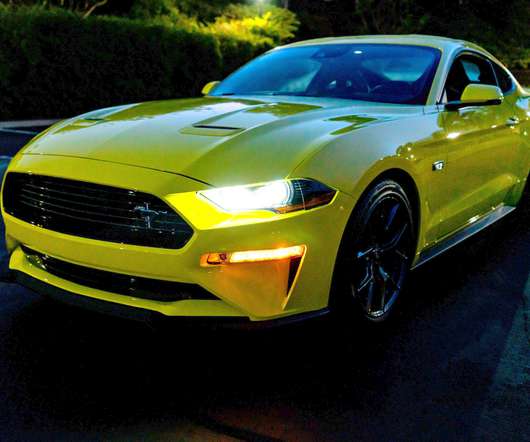Ford CEO: Ford to focus on 5 key areas of innovation: mobility, autonomy, connectivity, customer experience and performance
Green Car Congress
DECEMBER 19, 2014
In a pre-Christmas media event, Ford president and CEO Mark Fields said while 2014 was a good year for the company, 2015 has the potential to be a “ breakthrough year ”. In moving forward on that, Fields said, Ford will focus on five key areas of innovation: mobility, autonomy, connectivity, customer experience and performance.












Let's personalize your content